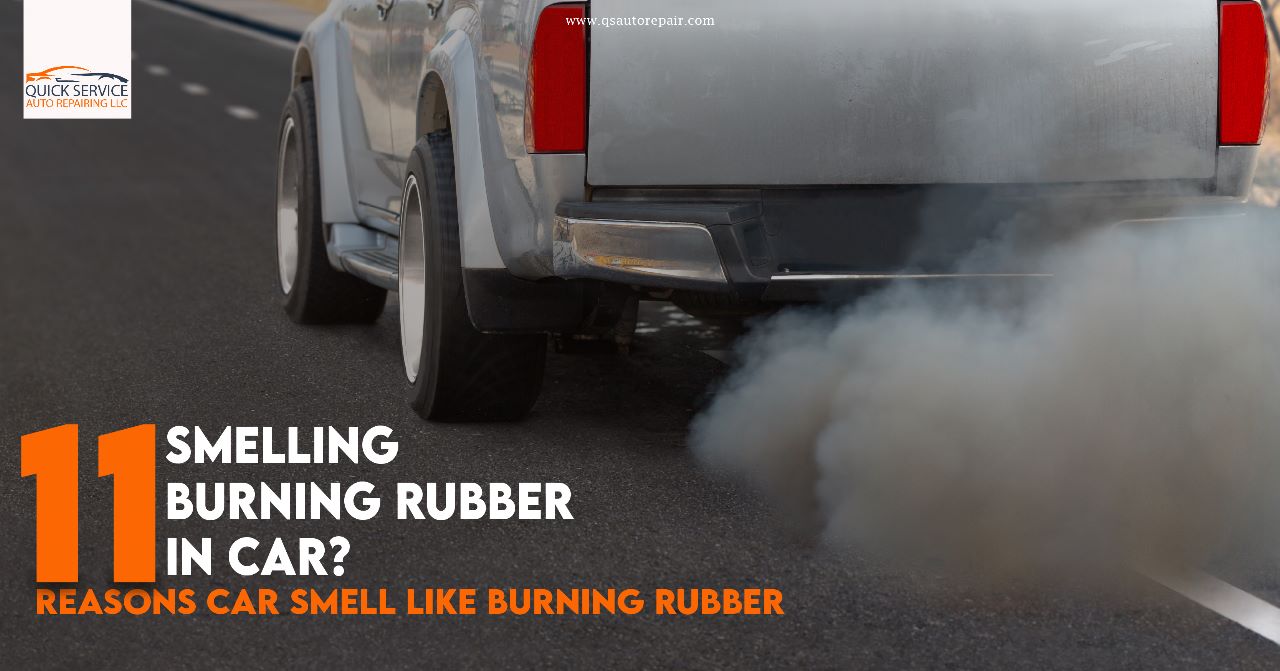نحن منفتحون 7 أيام في الأسبوع
Fri إلى خميس 08:00 صباحا - 10:00 مساءا
Why the Car Air Conditioner Is Not Cooling: Best tips to Fix Your Car AC
Few things are as frustrating as a scorching summer day when your car’s air conditioner malfunctions. We rely on our car’s AC to provide a comfortable driving experience, but sometimes, it fails to deliver the much-needed cooling. This article will explore why the Car Air Conditioner Is Not Cooling and discuss effective troubleshooting and maintenance tips to keep your car’s air conditioner in optimal working condition.

Common Reasons Why the Car Air Conditioner is Not Cooling
Nothing is quite as frustrating as a hot summer day when you’re counting on your car’s air conditioner to provide some relief, only to find that it’s blowing hot air. A malfunctioning car AC can turn your daily commute into an uncomfortable ordeal. In this article, we’ll explore some of the common reasons why your car’s air conditioner may not be cooling as it should, helping you understand the issues and take steps to rectify them.
Low Refrigerant Levels
Low refrigerant levels are among the most frequent reasons for a car’s air conditioner not cooling adequately. Refrigerant, referred to as Freon, is the substance responsible for absorbing and cooling heat from the air before circulating it into your car’s cabin. If the refrigerant levels are insufficient, the AC system can’t efficiently perform this heat exchange process, resulting in warm air blowing from the vents.
Dirty or Blocked Condenser
The condenser is a crucial component of your car’s air conditioning system. It’s typically located in front of the radiator, and its role is to release the heat absorbed by the refrigerant. However, it can’t dissipate heat effectively when the condenser becomes clogged with dirt, debris, or bugs. This impedes the cooling process, and as a result, you may experience less cooling power.
Malfunctioning Compressor
The compressor serves as the heart of your car’s AC system. It’s responsible for pressurizing and circulating the refrigerant, facilitating the heat exchange process that cools the air. The AC compressor malfunctions can disrupt this critical process, causing your car’s air conditioner to blow warm air. Unusual noises from the compressor or a failure to engage are common signs of compressor problems.
Faulty Thermostat
Your car’s thermostat is responsible for regulating the interior temperature. It may not signal the air conditioner to cool air adequately when it malfunctions. This can lead to discomfort, especially if the thermostat incorrectly reads the cabin temperature. A faulty thermostat often results in inconsistent cooling, making your car’s air conditioner less reliable.
Signs of a Non-Functioning Car Air Conditioning System
When the scorching heat of summer rolls in, your car’s air conditioning system becomes your best friend on the road. However, there may come a time when it doesn’t perform as it should. To help you identify when your car’s air conditioning system is not functioning correctly, here are some common signs to watch for:
Warm Air
The most obvious and straightforward sign of a malfunctioning car air conditioning system is when it blows warm air instead of the cool, refreshing air you expect. If you set the temperature to a comfortable level but only feel warmth from the vents, it clearly indicates something is amiss.
Weak Airflow
Another sign of trouble is when the airflow from the vents is noticeably weaker than usual. Even if the air is cool, reduced airflow can result in insufficient cabin cooling, making you uncomfortable on hot days.
Unusual Noises
A properly functioning car AC should operate quietly, with only the sound of air blowing. If you hear unusual noises such as rattling, clunking, or squealing from the AC system, it’s a clear sign that something has gone awry. Unusual noises often indicate issues with the compressor, fan, or other components.
Unpleasant Odors
If you detect unpleasant odors when you turn on the AC, it may be due to mold or mildew growth in the system’s evaporator or ducts. These odors can be uncomfortable and potentially harmful to your health.
Inconsistent Cooling
Inconsistent cooling is a common sign of a malfunctioning AC system. You may notice that the system works fine one moment and then loses its cooling power the next. This inconsistency can result from problems such as low refrigerant levels or a malfunctioning thermostat.
Leaking Water Inside the Car
If you find water pooling on the floor of your car, especially near the dashboard area, it could be a sign of a clogged condensate drain or a malfunctioning evaporator. Both issues can compromise the efficiency of your air conditioning system.
Ice Formation
While you expect your AC to blow cold air, ice forming on the AC components, such as the evaporator or refrigerant lines, is abnormal. Ice buildup can obstruct the system’s airflow and reduce cooling effectiveness.
Reduced Gas Mileage
A malfunctioning AC system can strain your engine, causing it to work harder and reduce your vehicle’s fuel efficiency. If you notice a significant drop in gas mileage, it may be linked to AC system issues.
Dashboard or Warning Lights
Some modern cars have dashboard warning lights that indicate AC system problems. If a relevant warning light illuminates your dashboard, it’s crucial to have your AC system inspected promptly.
Strange Behavior
Any unusual behavior from your car’s air conditioning system, such as erratic temperature changes or a system that turns on and off unexpectedly, should be considered a potential sign of malfunction.
In summary, paying attention to these signs is essential to ensure your car’s air conditioning system remains in good working condition. If you experience any of these issues, having your AC system inspected and repaired by a qualified technician is advisable to ensure your comfort and safety on the road, particularly during the hottest months of the year.
DIY Troubleshooting for Your Car’s Air Conditioning System
Experiencing issues with your car’s air conditioning system can be frustrating, especially during the scorching summer months. While some AC problems require professional attention, you can take a few do-it-yourself (DIY) troubleshooting steps to assess and potentially resolve minor issues. Here’s a guide to help you troubleshoot your car’s AC system:
Check the Air Filter
A clogged or dirty cabin air filter can hinder airflow, reducing the efficiency of your AC system. Start by locating the cabin air filter (usually behind the glove compartment or under the hood) and inspect it. If it’s dirty, replace it with a new one. A clean air filter allows for better airflow and cooling performance.
Verify the Temperature Setting
Sometimes, the issue might be as simple as an incorrect temperature setting. Make sure your temperature control is set to the desired cooling level. It’s easy to accidentally turn the temperature control to warm without realizing it, resulting in warm air blowing from the vents.
Clean the Condenser
The condenser is located at the front of your car, often behind the grille. Over time, it can accumulate dirt, bugs, and debris, obstructing airflow and reducing cooling efficiency. Use a gentle stream of water or compressed air to clean the condenser. Ensure the fins are not damaged during the cleaning process.
Check for Refrigerant Leaks
Low refrigerant levels can significantly impact your AC system’s performance. You can purchase a refrigerant leak detection kit from an auto parts store to check for leaks. Follow the instructions to identify any leaks and address them as needed. Handling refrigerant can be hazardous, so take precautions and consider professional help if you’re uncertain.
Inspect the Compressor
If you suspect a problem with the compressor, listen for unusual noises coming from it. A malfunctioning compressor often makes grinding or clicking sounds. Ensure the compressor is engaged when the AC is turned on. It may need professional attention if it’s not engaging or if there are strange noises.
Examine the Drive Belt
Your car’s AC system uses a drive belt connected to the engine. Over time, this belt can wear out or become loose, affecting the compressor’s performance. Carefully inspect the drive belt for signs of wear, cracks, or looseness. If you notice any issues, it’s best to consult a mechanic for replacement or adjustment.
Test the Thermostat
If you suspect a faulty thermostat, you can do a basic test by running your AC system at its lowest setting and gradually increasing the temperature. If the air doesn’t gradually change from cold to warm as you adjust the thermostat, it may malfunction and should be recalibrated or replaced by a professional.
Check the Electrical Connections
Loose or corroded electrical connections can disrupt your AC system’s operation. Inspect the electrical connections for the compressor and blower motor. Ensure they are clean, tight, and free from corrosion. Reconnect or clean as necessary.
Verify the AC Refrigerant Pressure
You can use an AC pressure gauge to verify the refrigerant pressure. This gauge provides information on whether the system is adequately charged. If the pressure is too low, it might indicate a leak or low refrigerant levels.
Remember that while these DIY troubleshooting steps can help with minor issues, it’s essential to prioritize safety and not undertake tasks you’re uncomfortable with. For more complex issues or when in doubt, consult a qualified automotive technician to diagnose and repair your car’s air conditioning system, ensuring optimal performance and comfort during hot weather
When to Seek Professional Help
While some troubleshooting can be done independently, it’s essential to recognize when professional intervention is necessary. If the issues persist after DIY attempts or you’re unsure about what’s causing the problem, consulting a certified technician is wise. They have the expertise and tools to diagnose and fix complex AC problems.
Regular Maintenance Tips
To prevent future issues with your car’s air conditioner, follow these maintenance tips:
Regularly check and change the cabin air filter:
The cabin air filter ensures that the air entering your car is clean and free of dust and pollutants. A clean filter improves AC performance, preventing contaminants from clogging the system.
Clean the condenser and evaporator coils:
These components are vital for efficient heat exchange. Periodically clean them to remove dirt and debris, ensuring the AC system can cool the air effectively.
Keep your car parked whenever possible:
Parking in the shade reduces the initial heat load on your car, making it easier for the AC system to cool the interior. Use a sunshade to block direct sunlight if you can’t find shade.
Run your AC system periodically to keep it in good working condition:
Using your car’s AC system occasionally, even in cooler weather, can help maintain its functionality and prevent issues related to lack of use.
The Importance of Professional Service for Car AC
Professional car AC service is essential for keeping your air conditioning system in shape. Expert technicians conduct comprehensive inspections, make precise repairs, and handle refrigerant safely. This service ensures energy efficiency, long-term cost savings, and, most importantly, your comfort and safety on the road.
Contact Quick Service Auto Repair
Ready to get your car’s air conditioner back to peak performance? Contact Quick Service Auto Repair today and schedule your service. We’ll have you enjoying excellent, comfortable drives in no time.
Location: [ Makani No.20214 79946, Warehouse No.12, 19D Street, Al Quoz Ind. Area 3, Dubai, UAE, Dubai, United Arab Emirates ]
Phone: [ +971 50 571 0433 ]
Website: [ https://qsautorepair.com/ ]
استنتاج
A malfunctioning car air conditioner can make your summer drives unbearable. Understanding the common reasons behind the issue and following appropriate troubleshooting and maintenance tips can save you from discomfort. If all else fails, don’t hesitate to seek professional help. Remember that a well-maintained AC system is essential for your comfort and safety on the road.
FAQs
Q. How often should I service my car’s air conditioner?
A. Regular maintenance is recommended at least once a year to keep your AC system in optimal condition. However, if you notice any issues or a decrease in cooling efficiency, it’s best to have it inspected as soon as possible.
Q. Can I use DIY AC recharge kits?
A. While DIY kits are available, handling refrigerant can be dangerous if not done correctly. It’s best to leave this task to professionals with the necessary tools and expertise to recharge your AC system safely.
Q. How do I know if my compressor is failing?
A. A noisy compressor or warm air from the vents are common signs of a failing compressor. If you experience these symptoms, consult a technician for a proper diagnosis and repair.
Q. What’s the role of the cabin air filter in AC performance?
A. The cabin air filter ensures that the air entering your car is clean and free of dust and pollutants. A clean filter allows for better AC performance by preventing contaminants from entering the system.
Q. Is it possible to overuse the car’s air conditioner?
A. While excessively using your AC may lead to increased fuel consumption, modern AC systems are designed to handle regular use without significant issues. However, it’s advisable to use it judiciously to conserve fuel and reduce wear and tear on the system.









